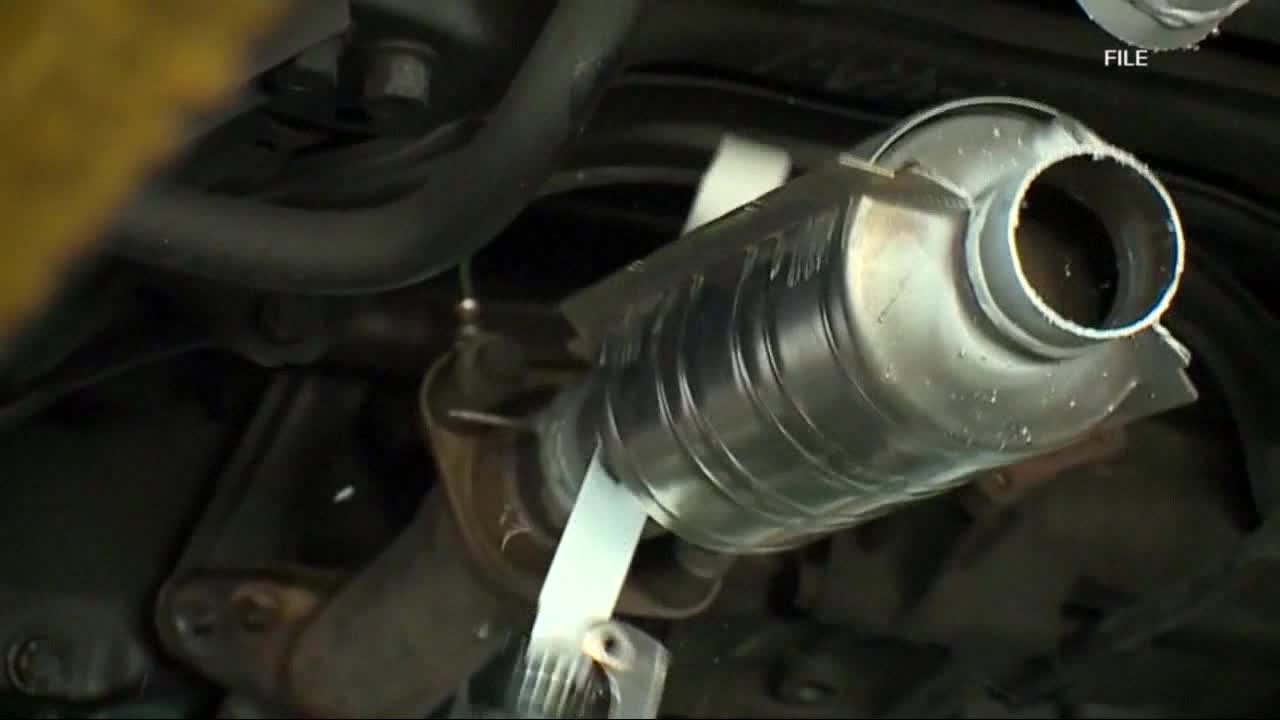Feds indict 4 Minnesota men in $21 million catalytic converter theft ring

Four Minnesota men have been indicted by a federal grand jury for their role in a national catalytic converter theft ring.
Federal prosecutors say John C. Kotten and Justin T. Johnson made about $21 million over a two-year span by selling stolen catalytic converters to buyers across the country.
The indictment, which includes charges of transporting stolen property across state lines and money laundering, comes after federal investigators announced a national takedown last year that included searches in Minnesota.
Investigators say Kotten and Johnson oversaw an organized conspiracy that included street-level cutters and intermediary buyers. Kotten, Johnson and others would buy the catalytic converters from thieves and then sell them to buyers in New York and New Jersey, according to the indictment.
As 5 INVESTIGATES reported last week, catalytic converter thefts started dropping in Minnesota and across the country around that same time, according to state and national data.
Catalytic converters contain precious metals that can be sold to both legitimate and illegal operations.
According to an indictment unsealed Tuesday, federal investigators seized hundreds of catalytic converters, trucks, tools and more than $500,000 from homes and bank accounts.
Two other men, Soe N. Moo and James D. Jensen, were indicted for buying and transporting catalytic converters on behalf of Kotten and Johnson. Moo is also facing allegations of possessing a machine gun after authorities say he offered to exchange catalytic converters for AR-15 style rifles and a gun with an auto sear.
Kotten tried to create the impression of a legitimate scrapping and recycling business by buying junk cars from individual sellers or at auctions to obtain titles or bills of sale, according to court filings.
While thefts are trending down for the first time in years, numbers from BeenVerified, a public data company, show they still remain nearly 21 times higher than in 2019.
Last year, 5 INVESTIGATES exposed a loophole in Minnesota law that made it hard to track stolen car parts. Lawmakers added new requirements for scrap recyclers, who will soon have to report purchases to a centralized database that is accessible to law enforcement.